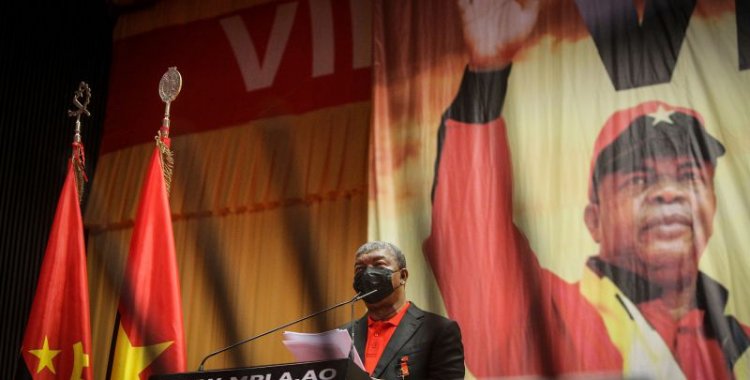Speaking in a mass rally to militants of the party that has governed Angola for 46 years, at stadium 11 de Novembro (Luanda), João Lourenço wore the clothes of a party leader, re-elected on Friday with 98 percent of the vote, but in a As Angola prepares for the 2022 elections, it did not fail to list the achievements of its government, stressing that "there are many projects" that it wants to complete in the next term.
He gave a historical review to highlight the importance of the MPLA, which celebrates 65 years, in the history of Angola and pointed out the merits of the party – and its government – also in economic issues, highlighting the challenge of abandoning an economy "almost completely nationalized", in which the private sector is now beginning to assume a leading role "to put into operation the assets of the State which, being giants, were practically at a standstill and did not fulfill their role of producing goods and services, but above all providing employment to youth".
On the positive side, he highlighted the increase in food production, criticizing opponents who, from morning to night, only sing one song: hunger, hunger, hunger. "Hunger is always relative," countered João Lourenço, stressing that the country already has a lot of food production.
"Perhaps for its own convenience, perhaps for political convenience, it would be convenient to repeat the word 'hunger' incessantly, but I would say that the great problem for Angola, if we want to be more precise, is the little purchasing power of our citizens resulting from the high unemployment rates", which he attributed to a set of factors, but above all to covid-19.
"Therefore these citizens, who unfortunately find themselves in this situation of unemployment or semi-employed, do not have the purchasing power to guarantee the livelihood of their families, but, for the rest, agricultural, livestock and fishing production has risen every day to the eyes of who wants to see and is minimally honest", he stressed, adding that it is a responsibility that has been passed on to the private business sector.
Continuing in the tone of the chief executive, João Lourenço said that the State will continue to make public investment, to increase the offer in the areas of health, education and transport and that despite the pandemic and the economic and financial crisis, it has been making improvements in the supply of energy and water supply, promising to favor a housing policy that is closer to people's preferences than that which has been followed with the centralities.
Another of the executive's objectives is decentralization, he continued, so that citizens can find essential services at the neighborhood and village level, a responsibility that will be attributed to the local authorities.
"The central power will get rid of some responsibilities and will pass them on to another type of power, the municipal power. But until that happens, even if we hold elections at any time, the local power will take some time to assert itself and until then something has to be done", said João Lourenço, indicating that the Integrated Plan for Intervention in Municipalities (PIIM), the executive's flagship program, is being put into practice.
"We used the resources of the Sovereign Fund with all transparency and created the PIIM, our detractors were afraid of the success of the PIIM, they didn't want us to solve the people's problem", he said, stressing that if they let their detractors guide them and go away. "weak of mind, the infrastructure that PIIM is building in the country would not exist.
He also spoke of next year's August elections, reiterating that the MPLA must work to ensure "resounding victory in next year's elections" and called for all voters to regularize the situation in order to exercise their right to vote.
"Like within the parties, those who do not present their candidacy in time are left out, those who do not register in time are also out," said the leader, assuring that the party will not work to win the next elections "just out of vanity", but so that in the next term of office he can continue to do what it was not possible to do, or complete, in the present term.
"There are many projects and, perhaps, it is more realistic to complete it in ten years than in five years", he pointed out at the end of his long speech, which lasted about an hour and thirty minutes.
João Lourenço says that hunger is relative and goes back to talking about municipalities, but without giving dates
The MPLA president left several criticisms to his political opponents and spoke about hunger, about autarchies and about the intention to fulfill in the next term what was left to be done.







